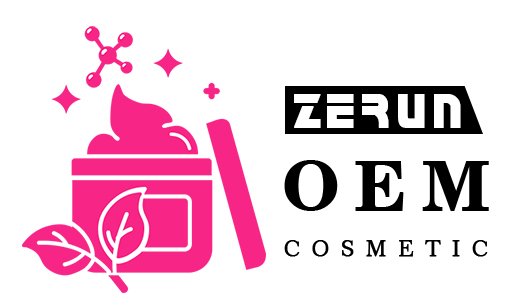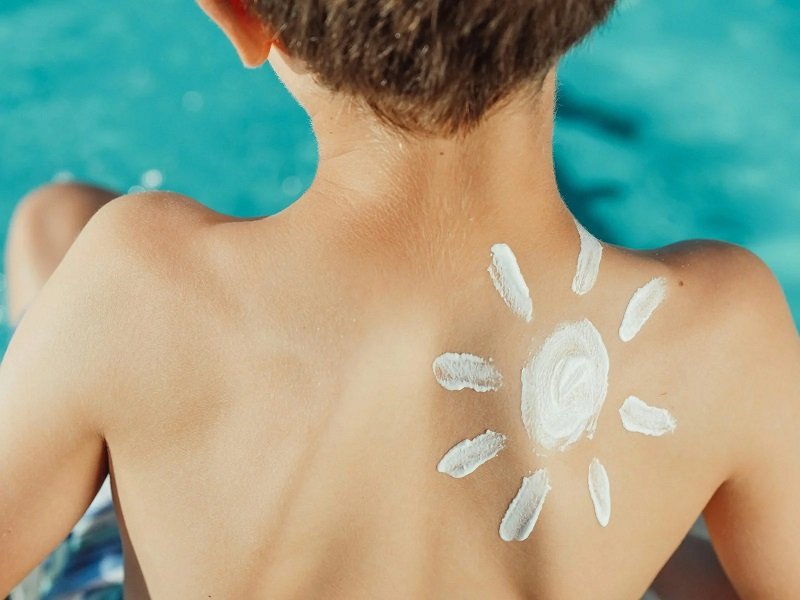We all know that sunscreen is a must, but how much do we really understand about it? It’s not just about avoiding sunburn; sunscreen plays a major role in protecting your skin from the sun’s harmful UV rays, preventing premature aging, and even reducing the risk of skin cancers. If you’ve ever wondered which sunscreen is best for your face, you’re in the right place!
Sunscreen is essential for protecting your face from UV damage, premature aging, and skin cancers. In this guide, we’ll help you find the perfect sunscreen for your skin by diving into ingredients, SPF choices, and the best products available.
What Is Sunscreen?
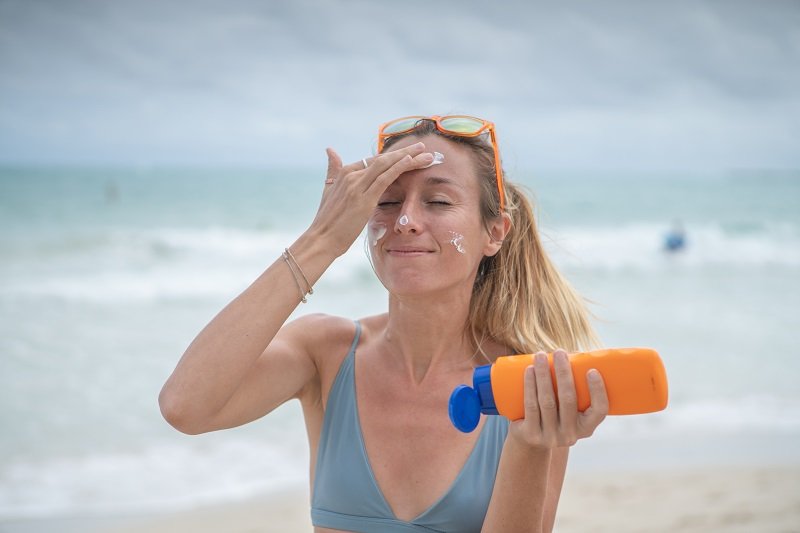
Sunscreen is a skincare product that acts as a protective barrier against the harmful effects of ultraviolet (UV) radiation from the sun. It works by either absorbing or reflecting UV rays, which can otherwise penetrate the skin and cause long-term damage. Sunscreen is essential for everyone, but it’s particularly important for the face, as this part of the body is constantly exposed to the sun and has more delicate skin compared to other areas.
What Does Sunscreen Do?
At its core, sunscreen works by protecting the skin from the two types of UV radiation emitted by the sun: UVA and UVB. Each type affects the skin differently, but both can cause significant harm.
- UVA rays penetrate deep into the skin and are responsible for premature aging (wrinkles, fine lines, and sagging). They can also contribute to the development of skin cancer.
- UVB rays primarily affect the surface of the skin and are responsible for sunburns. They are also linked to skin cancers, especially melanoma.
Sunscreen blocks or absorbs these harmful rays, preventing them from penetrating the skin. It does this through various active ingredients like zinc oxide, titanium dioxide (mineral sunscreens), or avobenzone, oxybenzone (chemical sunscreens), which either physically block or chemically absorb UV rays.
Why Is Sunscreen Important for the Face?
- Prevents Sunburns: The face is highly exposed to sunlight throughout the day, making it more vulnerable to sunburns. Sunburns can be painful, and repeated exposure to UV rays without protection increases the risk of long-term skin damage, including premature aging and skin cancer.
- Reduces the Risk of Skin Cancer: Skin cancers, such as basal cell carcinoma, squamous cell carcinoma, and melanoma, are linked to UV radiation exposure. Regular use of sunscreen significantly reduces the risk of developing these cancers by protecting the skin from harmful rays.
- Fights Premature Aging: UVA rays are primarily responsible for causing signs of aging such as wrinkles, fine lines, and age spots. By blocking these rays, sunscreen helps maintain a youthful appearance and protects against the breakdown of collagen and elastin, two key proteins that keep the skin firm and supple.
- Prevents Hyperpigmentation: People with darker skin tones or those who are prone to melasma (dark patches) can benefit from sunscreen as it prevents the worsening of these conditions. UV rays stimulate the production of melanin, which can lead to darker spots on the face. Sunscreen acts as a shield to stop this from happening.
- Protects Sensitive Skin: The skin on your face, especially around the eyes and mouth, is more delicate than the skin on other parts of your body. Exposure to UV radiation can cause damage that may result in more visible signs of aging or irritation. Sunscreen helps prevent this by offering a protective layer.
Additional Benefits of Sunscreen
- Prevents Tanning: While a tan might look appealing to some, it’s actually a sign of skin damage. Sunscreen can help maintain your skin’s natural tone without promoting harmful tanning.
- Improves Skin Texture: Sunscreen helps keep the skin smooth by reducing the breakdown of essential skin proteins and minimizing skin damage caused by UV exposure.
How Does Sunscreen Protect Your Face?
Sunscreen uses either physical (mineral) or chemical blockers to protect the skin.
- Physical Blockers like zinc oxide and titanium dioxide reflect UV rays away from the skin. These are often used in mineral sunscreens and are ideal for sensitive skin because they’re gentle and offer broad-spectrum protection against both UVA and UVB rays.
- Chemical Blockers like oxybenzone, avobenzone, and octinoxate absorb UV rays and transform them into heat, which is then released from the skin. While chemical sunscreens tend to feel lighter and blend more easily into the skin, they might not be suitable for sensitive or acne-prone skin types.
SPF: The Key to Effective Protection
The Sun Protection Factor (SPF) number on sunscreen labels tells you how well a sunscreen will protect you from UVB rays. SPF is a measure of how long it would take for the skin to burn when using the sunscreen compared to how long it would take without it.
- SPF 30 blocks around 97% of UVB rays.
- SPF 50 blocks around 98% of UVB rays.
It’s important to choose a sunscreen with at least SPF 30 for daily use. For extended sun exposure or activities like swimming or hiking, you should go for an SPF 50+ to ensure stronger protection.
Remember, sunscreen isn’t a one-time thing; it needs to be reapplied throughout the day, especially after sweating or swimming. Be diligent about sunscreen use and make it a part of your daily skincare regimen!
Which Sunscreen Ingredients Are Best for Face Protection?
Choosing the right ingredients in your sunscreen is crucial. There are two primary types of sunscreen ingredients: chemical (synthetic) and mineral (physical). Each type has its own pros and cons, so knowing what works best for your skin type will make a huge difference.
The best sunscreen ingredients for face protection are zinc oxide, titanium dioxide (mineral), and avobenzone (chemical). These ingredients provide effective broad-spectrum UV protection.
- Mineral Sunscreens (Physical Blockers): These sunscreens contain zinc oxide and titanium dioxide. They work by sitting on top of the skin, physically blocking UV rays. They are ideal for sensitive skin types, as they are less likely to irritate or cause allergic reactions.
- Chemical Sunscreens: These contain ingredients like avobenzone, oxybenzone, and octinoxate, which absorb UV radiation and convert it into heat, which is then released from the skin. Chemical sunscreens tend to feel lighter on the skin, but they may cause irritation for sensitive or acne-prone skin.
- Non-Comedogenic Sunscreens: If you have oily or acne-prone skin, you’ll want to look for sunscreens labeled “non-comedogenic,” meaning they won’t clog your pores.
Here’s a quick comparison of sunscreen ingredients:
| Ingredient | Type | Benefits | Ideal for |
|---|---|---|---|
| Zinc Oxide | Mineral | Blocks both UVA and UVB rays, non-irritating | Sensitive skin, acne-prone skin |
| Titanium Dioxide | Mineral | Natural UV protection, gentle on skin | Sensitive skin, rosacea, acne-prone |
| Avobenzone | Chemical | Provides strong UVA protection | Normal to dry skin, long-lasting wear |
| Oxybenzone | Chemical | Provides broad-spectrum UVA/UVB protection | Oily or combination skin |
How Do Chemical vs. Mineral Sunscreens Compare for the Face?
When it comes to choosing between chemical and mineral sunscreens, both types have their advantages. The key difference lies in how they protect your skin.
Chemical sunscreens absorb UV rays, while mineral sunscreens physically block them. Choose the type based on your skin’s needs and personal preferences.
- Chemical Sunscreens: These are lightweight and often feel more like a moisturizer. They tend to disappear into the skin without leaving a white residue, making them ideal for daily wear, especially for people with normal or dry skin.
- Pros: Lightweight, non-visible, and good for daily use under makeup.
- Cons: May cause irritation for sensitive or acne-prone skin.
- Mineral Sunscreens: These sit on top of the skin and physically block UV rays. Although they may leave a white cast, newer formulations have become more transparent and user-friendly. They are especially good for sensitive skin types.
- Pros: Effective for sensitive skin, long-lasting, and natural.
- Cons: May feel thicker and can leave a visible white residue.
Which Type is Right for You? If you have sensitive or acne-prone skin, mineral sunscreens are a better option. If you’re looking for something lightweight, chemical sunscreens might be the way to go.
Are There Sunscreens for Sensitive or Acne-Prone Skin?
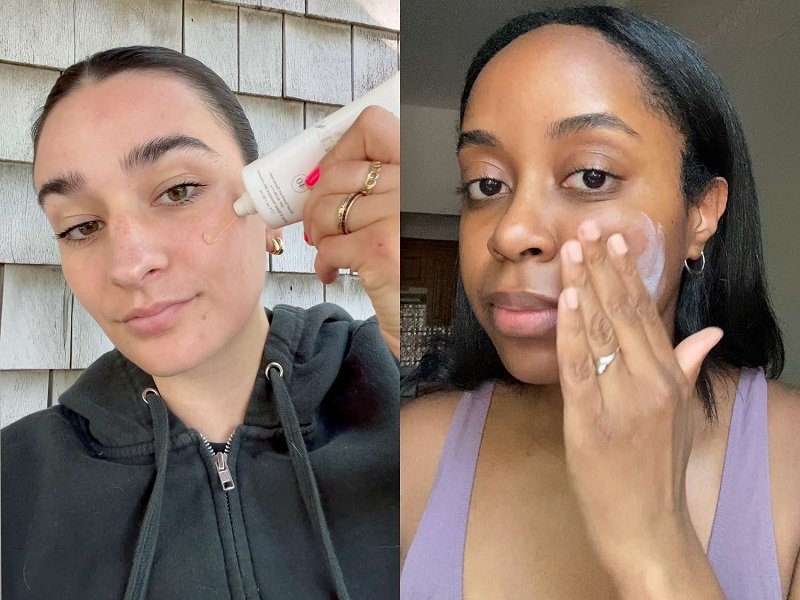
Yes, there are sunscreens specifically designed for sensitive and acne-prone skin. The good news is that not all sunscreens are created equal, and with the right ingredients, you can find a formula that offers the protection you need without irritating your skin or causing breakouts. The challenge, however, is selecting the right one, as many sunscreens can be heavy, clog pores, or contain chemicals that may cause irritation. Fortunately, there are sunscreens available that cater to these concerns, offering both effective protection and skin-friendly formulas.
Why Is Choosing the Right Sunscreen Important for Sensitive and Acne-Prone Skin?
Sensitive and acne-prone skin requires special care because these skin types are more likely to react negatively to certain ingredients commonly found in sunscreens, such as fragrances, alcohol, or chemical filters. If your sunscreen isn’t formulated for sensitive or acne-prone skin, you might experience irritation, redness, breakouts, or clogged pores.
Here’s a breakdown of how different sunscreen ingredients can affect sensitive or acne-prone skin:
- Fragrances and Harsh Chemicals: Many sunscreens contain synthetic fragrances or alcohol, which can cause irritation, redness, or even rashes for those with sensitive skin.
- Heavy Textures: Sunscreens with thick textures, especially ones that contain oils or thick moisturizers, may clog pores and contribute to breakouts in acne-prone skin.
- Chemical Filters: Sunscreens that contain chemical filters like oxybenzone, octinoxate, or avobenzone can sometimes cause irritation or allergic reactions, particularly for those with sensitive skin.
What to Look for in Sunscreens for Sensitive and Acne-Prone Skin?
When choosing a sunscreen for sensitive or acne-prone skin, look for the following features:
1. Non-Comedogenic Formulas
- Non-comedogenic sunscreens are specifically designed not to clog pores. These are crucial for acne-prone skin, as clogged pores are one of the main causes of acne breakouts.
2. Mineral (Physical) Sunscreens
- Mineral sunscreens contain zinc oxide or titanium dioxide as active ingredients. These physical blockers sit on top of the skin and reflect UV rays, instead of absorbing them like chemical sunscreens. They are generally less irritating and less likely to cause breakouts, making them ideal for sensitive skin.
- Why Mineral Sunscreens Are Best for Sensitive Skin:
- Less Irritating: They don’t absorb into the skin, reducing the risk of irritation.
- Broad-Spectrum Protection: They protect against both UVA and UVB rays, which is essential for protecting your skin from sun damage.
3. Fragrance-Free and Alcohol-Free
- Look for sunscreens that are fragrance-free and alcohol-free. Fragrances can be irritating to sensitive skin, while alcohol can dry out your skin or worsen acne. Choosing products without these ingredients helps reduce the risk of irritation or inflammation.
4. Oil-Free Formulas
- For acne-prone skin, choose sunscreens that are oil-free. Oil-free sunscreens have a lighter texture, reducing the chance of pore-clogging and preventing acne breakouts.
5. Hypoallergenic Options
- Hypoallergenic sunscreens are designed to minimize the risk of allergic reactions. These are especially important for sensitive skin, which may react to certain ingredients found in regular sunscreens.
Recommended Sunscreens for Sensitive and Acne-Prone Skin
Here are some sunscreens specifically formulated to work well for sensitive and acne-prone skin. They focus on gentle ingredients while still providing full protection against the sun’s harmful rays.
1. La Roche-Posay Anthelios Mineral Sunscreen SPF 50
- Why It’s Great: This sunscreen is a top pick for those with sensitive skin. It uses zinc oxide as its active ingredient, which provides broad-spectrum protection without irritating or clogging pores.
- Key Features:
- Fragrance-free and paraben-free
- Broad-spectrum protection
- Suitable for sensitive skin, including rosacea-prone skin
2. EltaMD UV Clear Broad-Spectrum SPF 46
- Why It’s Great: EltaMD’s sunscreen is ideal for acne-prone skin. It’s oil-free and contains niacinamide, an anti-inflammatory agent that can help calm irritated skin while providing essential UV protection.
- Key Features:
- Oil-free, non-comedogenic
- Contains niacinamide, ideal for acne and rosacea
- Fragrance-free, non-irritating formula
3. Neutrogena Clear Face Sunscreen SPF 55
- Why It’s Great: This sunscreen is formulated specifically for acne-prone skin. It’s lightweight and non-comedogenic, meaning it won’t clog pores. It also offers high SPF protection.
- Key Features:
- Oil-free, lightweight formula
- Non-comedogenic and dermatologically tested for acne-prone skin
- High SPF 55 protection for daily sun exposure
4. CeraVe Hydrating Mineral Sunscreen SPF 30
- Why It’s Great: CeraVe’s mineral sunscreen is a gentle option that also helps hydrate the skin. It contains ceramides to help restore and maintain the skin’s natural barrier, which is essential for sensitive skin.
- Key Features:
- Broad-spectrum protection with zinc oxide
- Hydrating formula with ceramides to replenish the skin
- Oil-free, fragrance-free, and non-comedogenic
5. Aveeno Positively Mineral Sensitive Skin Sunscreen SPF 50
- Why It’s Great: Aveeno’s sunscreen is formulated with zinc oxide and is gentle enough for sensitive skin. It’s perfect for those who need both high protection and a skin-friendly formula.
- Key Features:
- Lightweight and non-greasy
- Free from parabens and fragrances
- Dermatologist-tested for sensitive skin
Sunscreen Application Tips for Sensitive and Acne-Prone Skin
- Apply Generously: Use a nickel-sized amount for your face, and don’t forget to cover areas like your neck, ears, and the back of your hands.
- Reapply Often: Sunscreen needs to be reapplied every two hours, or more often if you’re sweating, swimming, or wiping your face.
- Layering Skincare Products: If you use a moisturizer or acne treatment before sunscreen, make sure the sunscreen is the last step in your routine to ensure maximum protection.
Finding the right sunscreen for sensitive or acne-prone skin doesn’t have to be difficult. By choosing mineral sunscreens with zinc oxide, oil-free, fragrance-free, and non-comedogenic formulas, you can protect your skin from harmful UV rays without irritation or breakouts. The sunscreens listed above are all highly recommended for their skin-friendly, protective qualities.
What SPF Should You Choose for Your Face?
SPF (Sun Protection Factor) tells you how long sunscreen will protect your skin from UVB rays, which are responsible for sunburn. The higher the SPF, the better the protection, but reapplying regularly is key to ensuring continuous protection.
For everyday use, choose sunscreen with an SPF of at least 30. For extended sun exposure, go for SPF 50+ to ensure better protection.
- SPF 30: Blocks about 97% of UVB rays. This is great for everyday use if you’re mostly indoors or spending minimal time in direct sunlight.
- SPF 50+: Blocks about 98% of UVB rays, providing better protection. Ideal for long days outdoors or during high-sun exposure, like at the beach or hiking.
- Reapplication: Sunscreen wears off over time, especially when you sweat or swim. Reapply every 2 hours to maintain full protection.
Which Sunscreen Brands Offer the Best Options for Face Protection in 2025?
In 2025, several sunscreen brands continue to lead the industry in offering high-quality, effective sun protection for the face. These products cater to a variety of skin types, including sensitive and acne-prone skin, and provide reliable broad-spectrum protection against harmful UVA and UVB rays. Below are six top sunscreen brands, with a focus on their best products for face protection:
| Brand | Product Name | SPF | Key Features | Best For |
|---|---|---|---|---|
| La Roche-Posay | Anthelios Melt-in Milk Sunscreen SPF 60 | SPF 60 | Broad-spectrum protection, fast-absorbing, water-resistant for up to 80 minutes, fragrance-free, paraben-free | Sensitive skin, dry skin |
| EltaMD | UV Clear Broad-Spectrum SPF 46 | SPF 46 | Oil-free, contains niacinamide to reduce inflammation, non-comedogenic, lightweight, fragrance-free | Acne-prone skin, rosacea, sensitive skin |
| Neutrogena | Ultra Sheer Dry-Touch Sunscreen SPF 100+ | SPF 100+ | High SPF for maximum protection, non-comedogenic, fast-drying, water-resistant for up to 80 minutes, lightweight | Oily skin, daily wear |
| Supergoop! | Unseen Sunscreen SPF 40 | SPF 40 | Transparent, velvety texture, weightless, antioxidant-rich formula, ideal for layering under makeup, broad-spectrum protection | All skin types, daily wear |
| Aveeno | Positively Mineral Sensitive Skin Sunscreen SPF 50 | SPF 50 | Zinc oxide-based, fragrance-free, soothing with colloidal oatmeal, broad-spectrum protection, water-resistant for up to 80 minutes | Sensitive skin, sun-sensitive skin |
| Coppertone | Sport Sunscreen Lotion SPF 50 | SPF 50 | Water-resistant up to 80 minutes, dermatologist-tested, non-greasy, broad-spectrum UVA/UVB protection, ideal for outdoor sports and physical activities | Active individuals, outdoor activities |
Detailed Product Breakdown
- La Roche-Posay Anthelios Melt-in Milk Sunscreen SPF 60Why It’s Great: Known for its gentle formula, this sunscreen provides broad-spectrum protection against both UVA and UVB rays, and is ideal for those with sensitive skin. It’s also water-resistant and suitable for outdoor activities. Key Features:
- Fast-absorbing and non-greasy
- Water-resistant for up to 80 minutes
- Fragrance-free and paraben-free
- EltaMD UV Clear Broad-Spectrum SPF 46Why It’s Great: This sunscreen is perfect for acne-prone and sensitive skin, with oil-free and non-comedogenic properties. It contains niacinamide, an anti-inflammatory ingredient, which helps calm redness and irritation, making it ideal for rosacea-prone skin. Key Features:
- Contains niacinamide to soothe the skin
- Oil-free, non-comedogenic
- Lightweight formula with high UVA protection
- Neutrogena Ultra Sheer Dry-Touch Sunscreen SPF 100+Why It’s Great: Offering maximum protection with an SPF of 100+, this sunscreen is perfect for individuals spending extended time outdoors. The dry-touch formula ensures that it absorbs quickly without leaving a greasy residue. Key Features:
- SPF 100+ for maximum sun protection
- Water-resistant for up to 80 minutes
- Fast-drying, non-comedogenic
- Supergoop! Unseen Sunscreen SPF 40Why It’s Great: Supergoop! is a favorite for its invisible, weightless formula that feels like a skincare product. It’s perfect for daily wear and works great under makeup as a primer. Key Features:
- Completely clear and invisible on the skin
- Broad-spectrum protection
- Contains antioxidants to protect against environmental stressors
- Aveeno Positively Mineral Sensitive Skin Sunscreen SPF 50Why It’s Great: This sunscreen is perfect for those with sensitive skin, offering a mineral-based formula with zinc oxide to protect against UV rays. It also contains colloidal oatmeal, which helps calm the skin and prevent irritation. Key Features:
- Zinc oxide-based for natural sun protection
- Fragrance-free, suitable for sensitive skin
- Water-resistant for up to 80 minutes
- Coppertone Sport Sunscreen Lotion SPF 50Why It’s Great: Designed for active individuals, this sunscreen provides robust, long-lasting protection. It’s ideal for sports or outdoor activities as it’s water-resistant and won’t leave a greasy feeling. Key Features:
- Water-resistant for up to 80 minutes
- Non-greasy, dries quickly
- Broad-spectrum protection, suitable for active use
How Do You Apply Sunscreen for Maximum Effectiveness?
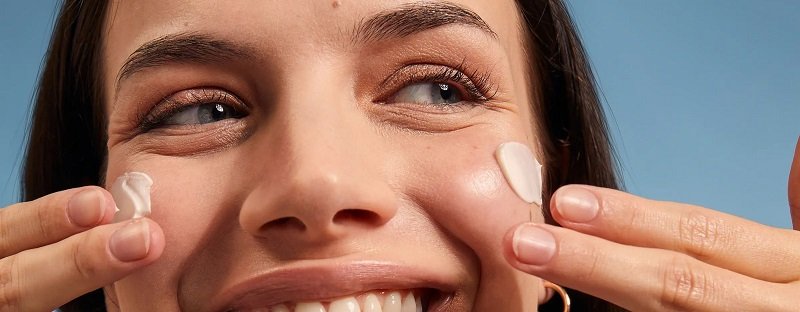
Applying sunscreen correctly is crucial for getting the full benefits of sun protection. Many people tend to underapply sunscreen or forget to reapply throughout the day, which can reduce its effectiveness. To ensure maximum protection from harmful UV rays, follow these detailed steps on how to apply sunscreen properly and make it a part of your daily routine.
1. Choose the Right Sunscreen for Your Skin Type
Before even applying sunscreen, it’s important to pick the right product for your skin. Whether you have dry, oily, sensitive, or acne-prone skin, make sure to choose a sunscreen that suits your skin type. Look for formulas that are:
- Oil-free for oily or acne-prone skin
- Fragrance-free and non-comedogenic for sensitive or acne-prone skin
- Hydrating or with added moisturizers for dry skin
- Mineral-based (with zinc oxide or titanium dioxide) for sensitive skin
2. Apply Sunscreen 15-30 Minutes Before Going Outside
For sunscreen to be effective, you need to apply it at least 15-30 minutes before going outside. This allows the product to properly bind to the skin and start working before you get exposed to the sun. Applying it just before stepping out may not give the sunscreen enough time to fully protect your skin.
3. Use the Right Amount of Sunscreen
One of the most common mistakes people make is not using enough sunscreen. For effective protection, you need to apply a generous amount. The general rule of thumb is:
- For your face: Use about a nickel-sized amount (around 1 teaspoon).
- For your body: Use about 1 ounce (roughly the amount in a shot glass) to cover your body from head to toe.
Here’s a breakdown of how much sunscreen you need for different body parts:
| Body Part | Amount of Sunscreen (approx.) |
|---|---|
| Face | 1 teaspoon (nickel-sized) |
| Neck & Ears | 1 teaspoon (nickel-sized) |
| Each Arm | 1 teaspoon (nickel-sized) |
| Each Leg | 2 teaspoons |
| Torso (front and back) | 2 teaspoons (1 ounce total) |
Make sure to apply the sunscreen evenly and generously across all exposed areas of your skin.
4. Apply Sunscreen to All Exposed Skin
Don’t just focus on the face—sunscreen should be applied to all exposed skin, including areas like the neck, ears, décolletage, hands, and the backs of your knees. If you’re wearing a tank top or shorts, make sure to cover your shoulders, arms, and legs. Even areas with minimal sun exposure, like the tops of your feet, should not be missed.
Tip: Don’t forget to protect your lips too! Many sunscreens come in lip balm form or you can use a lip balm with SPF 30 or higher to protect your lips from sun damage.
5. Massage Sunscreen In Evenly
To ensure that the sunscreen provides an even layer of protection, massage it in thoroughly. This also helps the sunscreen absorb into the skin better. Be gentle, especially around sensitive areas like the eyes, but make sure there are no spots missed.
6. Reapply Sunscreen Every Two Hours
Sunscreen is not a “one-and-done” application. It wears off over time due to sweating, swimming, and other activities. Reapply sunscreen every two hours, or more often if you’re swimming or sweating. Even water-resistant formulas need to be reapplied after swimming or sweating heavily.
- Water-resistant sunscreens last longer in the water but must still be reapplied after 40-80 minutes, depending on the product.
Tip: Use a sunscreen spray or powder sunscreen for easy reapplication on the go, especially if you’re wearing makeup.
7. Don’t Forget to Reapply Over Makeup
If you’re wearing makeup, reapplying sunscreen can seem tricky, but it’s essential. Sunscreen sprays or powders are the easiest options for reapplying over makeup without disrupting your look. Simply mist a sunscreen spray over your face or dust a sunscreen powder over your makeup.
8. Use Sunscreen Even on Cloudy Days
Up to 80% of UV rays can penetrate through clouds, so it’s essential to wear sunscreen every day, even if it’s cloudy. The sun’s rays can still reach your skin and cause damage, leading to premature aging and an increased risk of skin cancer.
9. Consider Extra Protection
While sunscreen is your first line of defense, don’t rely solely on it. For additional protection, consider these extra steps:
- Wear protective clothing like hats, sunglasses, and long sleeves to shield your skin from direct sunlight.
- Seek shade whenever possible, especially during peak sun hours (usually between 10 a.m. and 4 p.m.).
Tip: Look for UPF-rated clothing (Ultraviolet Protection Factor) that offers additional protection from UV rays.
10. Don’t Forget Your Scalp and Hairline
The scalp is often overlooked, but it’s equally vulnerable to sun damage. If you have a part in your hair or wear a hairstyle that exposes your scalp, use a sunscreen spray or apply sunscreen directly to your scalp, especially around the hairline.
Tip: Wear a wide-brimmed hat to protect your scalp and face from the sun.
Sunscreen Application in Different Situations
Here’s a quick guide for applying sunscreen in specific situations:
- For Outdoor Activities: If you’re heading out for a hike, beach day, or sporting event, apply sunscreen to your face and body 30 minutes before you leave. Don’t forget to reapply every two hours, especially if you’re sweating or swimming.
- For Daily Commutes or Office Days: Even if you’re mostly indoors, if you’re near windows or commuting, make sure to wear sunscreen daily, especially since UVA rays can penetrate windows. Apply sunscreen as the last step of your morning routine, after moisturizing.
Conclusion
Choosing the right sunscreen for your face doesn’t have to be difficult. By understanding the ingredients, SPF ratings, and your skin type, you can easily find a product that will protect your skin from the sun and help maintain a youthful, healthy appearance.
If you’re looking to create your own line of sunscreen products or other skincare essentials, Zerun Cosmetic is here to help. We offer tailored solutions, from design to product development, and can create custom formulations for your brand. Contact us today to get started with your own private-label skincare products!
